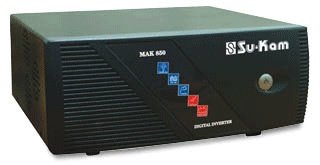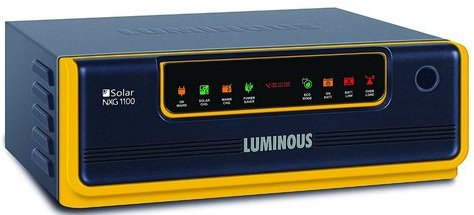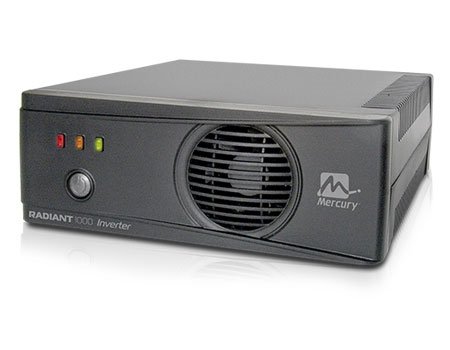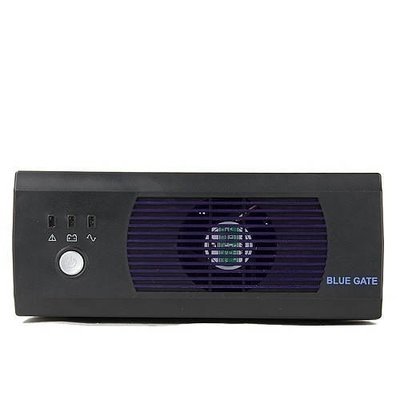The terrible state of electricity supply in Nigeria has made solar and other form of alternative power sources attractive to many Nigerians who crave uninterrupted supply of electricity. Either as a component for systems storing power from public or private supply, inverters are an important part of the push to fill the electricity gap.
Here is a complete guide to inverter prices based on type of the inverter
What are Inverters
Inverters come in different sizes and capacity depending on the load of the electricity system. This load is determined from appliances that will be used in the system, including television, fans, light bulbs, air conditioners and kitchen appliances.
The higher the power rating of the system, i.e. the amount of electricity it needs to work, the higher (and more expensive) the rating of the inverter needed in the system. A system that has no air conditioner or freezer will be of lower rating (and less expensive) than the one which has these.
How Inverters work
Inverters are basically electronic devices that behaves like an oscillator that converts direct current (DC) from a battery source which most electronics can’t use to alternating current (AC) that can be used by electrical gadgets.
By rapidly switching the polarity of the DC power source, it inverts it to generate a square wave. This is then converted into either modified sine wave or pure sine wave that most electrical appliances use
Classifications of inverters
Inverters are classified both by their capacity and by the type of output electricity they give.
Depending on the type of output, inverters can be of modified sine waves or pure sine waves. Modified sine wave inverters tend to be relatively affordable and less powerful but is perfectly fine for most electrical appliances.
Pure sine waves work with virtually all electrical appliances and thus are more expensive.
Beside the type of output, inverters are also classified according to their output voltage.
Most of the electricity inverters for home usage fall between 300 to 5000 watts, with the 3000W inverters usually considered as the best balance between cost and functionality for home use
In this article, we provide current prices of the best inverters that are available in the Nigerian market this 2021. This also includes the inverters that are affordable, even an average Nigerian can buy.
See 7 places where electrical engineers can work
Here are 7 different makes of quality inverters you can buy to meet your power supply demands
Inverters and their Prices in Nigeria
1. Sukam Inverters
Sukam inverters are made in India and uses advanced DSP Sine wave technology. Here are prices for Sukam Inverters in Nigeria for 2021:

A Sukam Inverter
Sukam 900VA / 12V – ₦58,000
Sukam 1.6KVA / 24V – ₦100,500
Sukam 2.5VA / 48V – ₦200,000
Sukam 3.5KVA / 48V – ₦240,000
Sukam 5.0KVA / 96V – ₦415,000
Sukam 7.5KVA / 120V – ₦555,000
Sukam 10KVA / 180V – ₦720,500
Sukam 15KVA / 360V (3 Phase) – ₦1,438,000
Sukam 20KVA / 360V (3 Phase) – ₦1,713,000
Sukam 25KVA / 360V (3 Phase) – ₦2,173,500
Sukam 30KVA / 360V (3 Phase) – ₦2,633,000
Sukam 40KVA / 360V (3 Phase) – ₦3,438,000
Sukam 50KVA / 360V (3 Phase) – ₦5,640,500
2. Luminous Inverter
One of India’s oldest inverter companies, Luminous has grown to be a respectable brand in the Industry, especially after its acquisition by Schneider Electric in 2016. These are the latest Luminous Inverter prices for 2021:

A Luminous Inverter
850VA / 12V (Solar Hybrid) – ₦82,000
1050VA / 12V (ECO VOLT) – ₦81,500
1.5KVA / 24V – ₦95,000
1.5KVA / 24V (Intelligent Inverter ) – ₦85,000
1.5KVA / 24V (Solar Hybrid) – ₦112,000
2.5KVA / 48V – ₦152,400
3.5KVA / 48V – ₦205,100
4KVA/48V – ₦269,000
5KVA / 96V – ₦599,800
7.5KVA / 120V – ₦760,000
10KVA / 180V – ₦920,000
20KVA/360V – ₦1,995,000
30KVA/24V (Solar Hybrid) – ₦ 2,850,000
3. Prag Inverters
A proudly Nigerian brand with several stores across the country, Prag continues to go toe-to-toe with more established brands in the market with its inverters. Here are Prag Inverters current 2021 price list:

A Prag inverter
1KVA / 12V – ₦85,600
1.2KVA / 12V – ₦76,600
1.45KVA / 24V – ₦83,100
1.5 KVA / 24V – ₦96,200
1.5 KVA /24V (Solar) – ₦123,400
2KVA/24V – ₦199,700
2.5KVA/24V – ₦144,500
3 KVA / 24V – ₦179,400
3 KVA / 24V (Pro Edition) – ₦531,200
3.5KVA / 24V – ₦292,700
4 KVA / 24V – ₦393,200
5 KVA / 48V – ₦468,700
6.5KVA / 48V – ₦602,200
7.5 KVA / 48V – ₦684,400
4. Mercury Inverters
Mercury is one of the better known electricity solution brands in Nigeria, with its product readily available. Here are some of the prices of Mercury Inverters in 2021

A Mercury Inverter
Mercury 1.2KVA / 12V (Modified Sine Wave) – ₦49,000
Mercury 2.4KVA / 24V (Modified Sine Wave) – ₦85,000
Mercury 3KVA / 24V – ₦235,000
Mercury 5KVA / 48V – ₦320,000
Mercury 7.5KVA / 120V – ₦405,000
5. Schneider Inverters
Schneider Inverters inverters are sine wave inverters made by Schneider Electric company of France, a leading energy multinational with presence in over 100 countries. Here are some of the prices for Schneider Inverters:

A Schneider inverter
850VA/12V – 50,000
1.5 KVA / 24V – ₦150,000
1.5 KVA /24V (Solar Hybrid) – ₦90,000
8.5 KVA / 48V – ₦1,700,000
6. Microtek Inverters
Microtek is another Indian maker of inverters that is gradually making an in-road into Nigeria. It is particularly enticing to many because of its price point compared to other products in the market. Here are some of the prices for Microtek Inverters:

A Microtek inverter
1.2KVA/12V – ₦55,000
1.7 KVA /24V – ₦75,000
2.3 KVA /12V – ₦105,000
3KVA/36V – ₦130,000
4 KVA / 48V – ₦195,000
5.2KVA/48V – ₦360,000
7. Blue Gate Inverters
Blue Gate is a well-known brand for alternate electricity products with headquarter in Delaware, USA. Here are some of Blue Gate inverters prices in Nigeria:

A Blue Gate inverter
Blue Gate 1.5KVA / 24V – ₦90,000
Blue Gate 2KVA / 24V – ₦100,000
Blue Gate 3.5KVA / 24V – ₦170,000
Blue Gate 5.5KVA / 24V – ₦200,000
Blue Gate 6KVA / 48V – ₦260,000
Blue Gate 7.5KVA / 48V – ₦400,000
Blue Gate 10KVA / 192V – ₦500,000
NOTE:- These prices may have changed due to various factors including inflation and forex fluctuations.
These inverters need to be installed by a professional whose fees has to be negotiated. Alongside the inverters, deep-cycle batteries are needed to ensure the availability of off-grid electricity. These size, number and type of batteries depend on the appliances that will be used as well as for how long they will be used. A professional can advise on the best approach to the sizing of these batteries.
Writer, photographer and physicist, ‘Yemi loves reading, football and searching for the interconnectedness of things.

